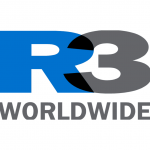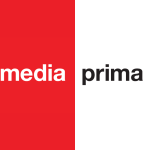Traditional media bleeds as stocks continue to plummet
Media stocks are facing a harsh downturn as a sluggish stock market, low advertising interest and weak consumer spending has proved to be its comeuppance.
A check on Bloomberg shows that the already-suffering media stocks listed on Bursa Malaysia Bhd have been battered over the past one year.
Former media powerhouses like Utusan Melayu (M) Bhd, Star Media Group Bhd, Astro Malaysia Holdings Bhd, Media Prima Bhd and Berjaya Media Bhd have taken a beating with their share prices almost halved over the last 52 weeks.
Adding to that, the market capitalisation of the five companies has also been decreasing over 50% within 12 months.
Out of the five listed media organisations, Utusan and Berjaya Media have fallen under the classification of Practice Note 17 (PN17) companies.
Utusan’s financials were inadequate as a listed entity, while Berjaya Media has been recording nothing but a widening quarterly net loss.
Media Prima however returned to black in its recent quarterly earnings, while both Astro and Star Media fell 93.3% and 83.4% respectively in their second-quarter (2Q) net profit.
Umno-linked Utusan has been on a losing streak, chalking up a loss of RM5.8 million for its 1Q ended March 31, 2018. In the same period last year, it lost RM22.8 million.
Utusan’s share price has reduced by 58.97% to close at 16 sen apiece last Friday compared to 39 sen last year.
The company has been bleeding over the past few years. Its shareholders’ fund declined to RM89.9 million with accumulated losses of more than RM71 million as of end-June this year.
Utusan had to call for a private placement exercise of up to 10% of its issued shares to raise RM2.1 million to repay its borrowings.
On Aug 20, the Malay language newspaper and publisher was classified as a PN17 company as it defaulted in its principal and profit payment to Maybank Islamic Bhd and Bank Muamalat Malaysia Bhd, totalling RM1.18 million.
Utusan was also unable to provide a solvency declaration to Bursa Malaysia.
Furthermore, Utusan also announced recently that it would offer a voluntary separation scheme (VSS) to all its 1,300 workers due to the company’s financial problems and unstable condition.
As reported by a local newspaper, Utusan intends to make the VSS payment via instalments.
This came after the Kuala Lumpur Labour Office probed the issue on Utusan’s failure to pay its staff salaries.
The company is also being sued by two companies, Nylex (M) Sdn Bhd and Redberry Sdn Bhd seeking refunds of their deposits totaling RM18.5 million.
Meanwhile, the largest English language daily, Star Media’s net profit plummeted 83.4% to RM1.41 million in the 2Q ended June 30, 2018 from RM8.51 million a year ago as the print and digital segment faced a drop in advertising after the recent general elections.
Shares of Star Media declined 54.78% to close at 80 sen last Friday, the lowest since 2007.
Its market cap has also dropped by half in the last 52 weeks from RM1.65 billion to only RM593.99 million as of last Friday.
In its ongoing cost-rationalisation exercise, Star Media also announced that it has ceased its printing operations in Bayan Lepas, Penang, effective September 2018.
The country’s largest pay-tv provider, Astro saw its 2Q net profit sink by 93.3% to RM16.6m from RM246.3m.
Owned by Malaysia’s fourth-richest person T Ananda Krishnan, sovereign wealth fund Khazanah Nasional Bhd, and state-owned pension fund Employees Provident Fund, Astro has had a ride of its own this year.
The fact that the new government decided to show most of the FIFA World Cup matches on mainstream television channel, Radio Televisyen Malaysia and the data leak involving Astro customers did not bode well for Astro.
Its share price slumped 46.48% over the last 12 months to close at RM1.50 from RM2.84 apiece one year ago.
Astro’s market value was also slashed by half to RM7.93 billion last Friday compared to RM14.71 billion last year.
Analysts from Kenanga Investment Bank Bhd and MIDF Amanah Investment Bank Bhd have also downgraded the stock.
Kenanga Investment analyst Cheow Ming Liang downgraded the stock to ‘Market Perform’, while MIDF’s Martin Chuan Loong Foo downgraded it to ‘Neutral’.
The country’s largest pay-television (pay-TV) provider saw its net profit for the 2Q ended July 31, 2018, sink by 93.3% to RM16.6 million, or 0.32 sen per share, from RM246.3 million, or 4.73 sen per share, in the previous corresponding quarter.
Berjaya Media’s The Sun lost only seven sen or 23.64%, in stock market price over the last one year, the owner of Malaysia’s first national free daily newspaper is not far behind from being delisted due to increasing net loss over the last one year.
Categorised under the PN17 status last year, Berjaya Media reported a bigger loss in its latest quarterly financial results mainly due to a decrease in revenue.
The loss for its 1Q ended July 31, 2018, widened to RM2.75 million from RM1.49 million a year ago. Loss per share rose to 1.17 sen from 0.63 sen.
The company has a market value of RM49.37 million, less than half of last year’s RM90 million. Its stock has returned a negative 26% so far this year.
Factors that affected its performance included newsprint cost, press printing, payroll, economic conditions and the demand for newspaper advertising.
In a filing to Bursa Malaysia, Berjaya Media said it will continue to focus on containing its cost and improving advertising revenue.
Media Prima however had better fate returning to the black with a share price decrease of as much as 40.51% over the past 52 weeks, from 79 sen to 47 sen apiece. It had a net profit of RM8.7 million for the first half of the year, its first quarterly profit since the fourth quarter of 2016.
This was mainly due to its business transformation initiatives and focus on digital content.
In general there was an overall decline in the advertising industry and future of newspapers and magazines remains uncertain.
According to Nielsen Media Research’s the latest adex figures show that total advertisement spend in Malaysia for the 2Q declined by 8.1% to RM1.58 billion compared to RM1.72 billion in the same quarter in 2017. The figures exclude pay-TV, outdoor and digital media.

MARKETING’s CMO Conference Returns with a Stellar Line-Up
Last year’s sold out conference is back! BIGGER, BETTER and with a NEW awards show to celebrate Malaysia’s best marketers.
Now in its 7th year, the Chief Marketing Officers Conference is a gathering of trailblazers in the Malaysian Marketing sphere. With a bold yet relevant theme of ‘Goodbye Marketing, Hello Engagement’ this year’s conference will bring you up to speed with what’s going on in the Malaysian marketplace.
The change makers who will take the stage on the 16th of November include:
• Damien Crittenden, VP Client Strategy, Xaxis
• Ben Mahmud, Head Strategy, Business Dev, Petronas Dagangan Bhd
• Dato’ Dr.Hussamuddin Hj. Yaacub, Chairman CEO & Group MD, Karangkraf Media Group
• Lim Imun, General Manager-Marketing Munchworld
• Juliana Chua, GM of Marketing, Pavilion KL
• Tai Kam Leong, Head of Branding & Partnership, Maxis
• Rishi Pahwa, Head of Marketing, Wipro Ginvera Marketing Ent Sdn Bhd
• Schrene Goh, Head of Marketing (Global Market) Malaysia Airlines
• Kenny Wong, CMO Sunrise Berhad ….and more!
The 7th Malaysian CMO Conference & Awards
Date:16th November 2018
Venue: The Grand Ballroom, Sime Darby Convention Centre
To book your seats, call Ruby on 03-77262588 or visit https://
MARKETING Magazine is not responsible for the content of external sites.









